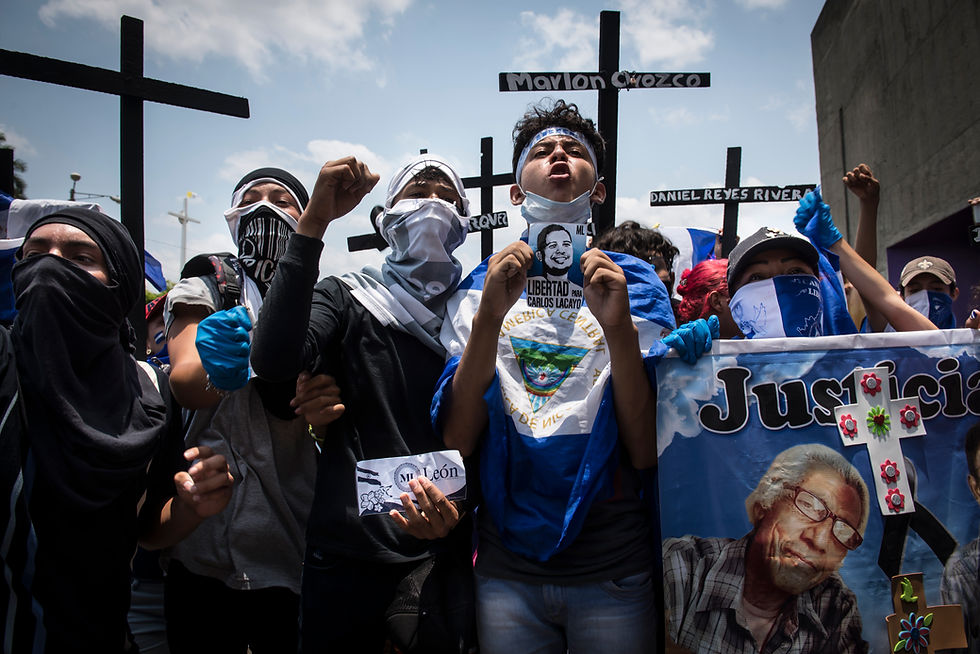NGO before the IACHR: "In Nicaragua, impunity has been institutionalized"
- communications0413
- Mar 16, 2022
- 2 min read
· Nicaraguan and international organizations demanded speed in cases presented before the inter-American human rights system and to strengthen cooperation with the UN to monitor and denounce the impunity of serious human rights violations.

Washington DC, March 15, 2022. “In Nicaragua, impunity has been institutionalized. Arbitrary situations continue to occur every day and there are no independent authorities to turn to. We are not just talking about the murders and all the rights violations that occurred in 2018. It is about sustained impunity.” With these words, Dr. Vilma Núñez de Escorcia closed her participation in the public hearing on the situation of human rights in a context of impunity in Nicaragua, which took place this Monday at the 183 Period of sessions of the Inter-American Commission on Human Rights (IACHR).
Dr. Núñez, president of the Nicaraguan Center for Human Rights (CENIDH) was part of a delegation that included representatives of the Autonomous Women's Movement, Open Ballot Boxes, the Center for Civil and Political Rights, the Institute on Race, Equality and Human Rights and the International Federation for Human Rights. The purpose of the hearing was to provide updated information on the serious human rights violations that continue to be committed in the country in a context of total impunity and to demand the establishment of special mechanisms to monitor and register these events.
In this regard, Mr. Andrés Sanchez, deputy representative of the Office of the United Nations High Commissioner for Human Rights (OHCHR) stated that "accountability is the core of the rule of law and that the first obligation of the Nicaraguan State is to be accountable for all the violations committed since the beginning of the crisis (April 2018)”, and that International Law has mechanisms for this purpose.
For her part, the IACHR Rapporteur for Nicaragua, Commissioner Esmeralda Arosemena de Troitiño, lamented the absence of a state representation at the hearing, which reiterates the refusal of any dialogue by the Ortega Murillo regime and called attention to the responsibility of the international community. “International law gives us tools so that the situation in Nicaragua is addressed. The measures have to be extraordinary, that is what the organizations have asked us to do,” she emphasized.
The Special Rapporteur for Freedom of Expression, Pedro Vaca, expressed his empathy and concern for the "deployment of institutional efforts" aimed at closing public space, criminalizing critical voices, the press and human rights defenders in Nicaragua. According to Vaca, in the recent sentences "there are enough elements to doubt the impartiality of the procedural guarantees, of the rights of defense" and this is of great concern to the Office of the Special Rapporteur for Freedom of Expression (RELE) because they are clear sanctions against expression in public affairs.
In this sense, the petitioning organizations in this hearing, which are members of the 46/2 Collective -a coalition of 21 national and international human rights organizations- have been advocating before the UN Human Rights Council for the installation of an International Mechanism of investigation and accountability for Nicaragua, which allows the monitoring and investigating of the serious violations of international human rights law committed since April 2018, with a view to future justice processes and punishment of those responsible.







Comments